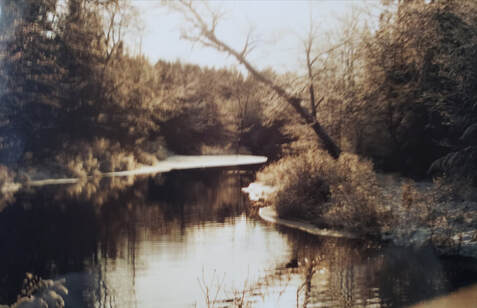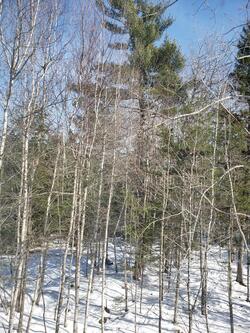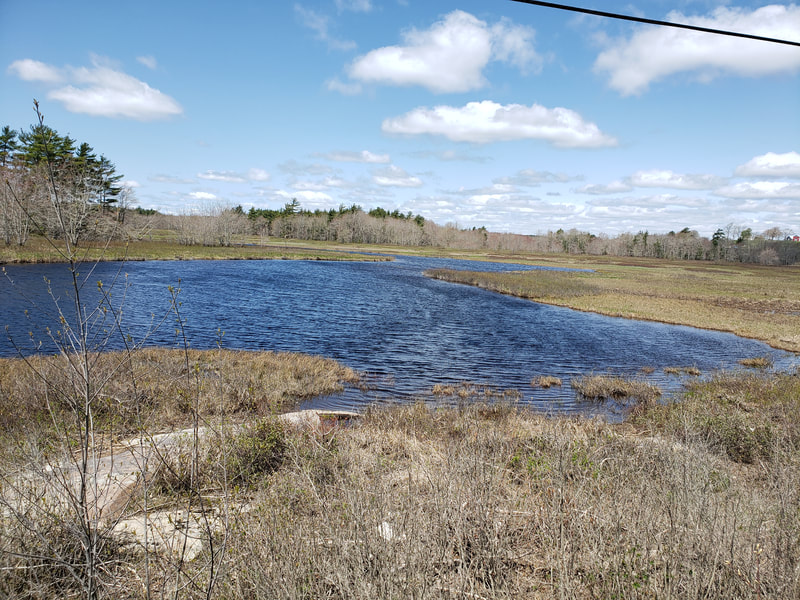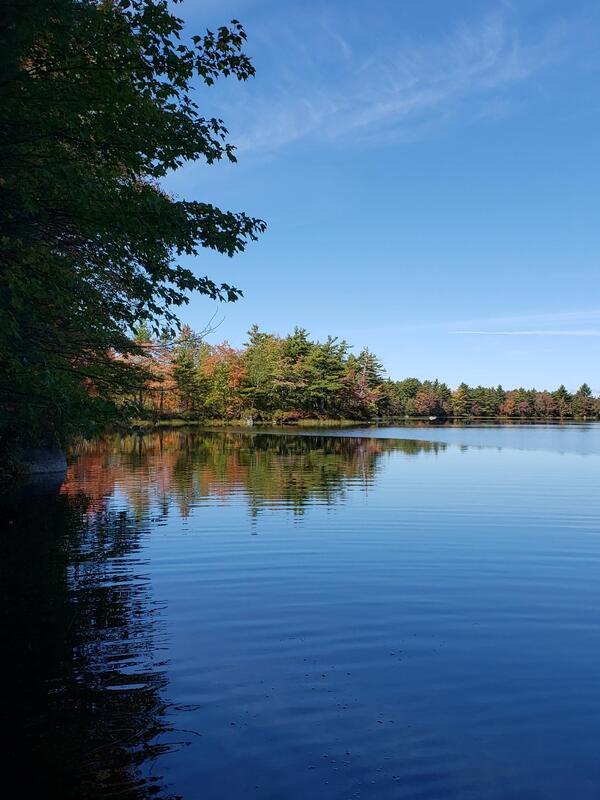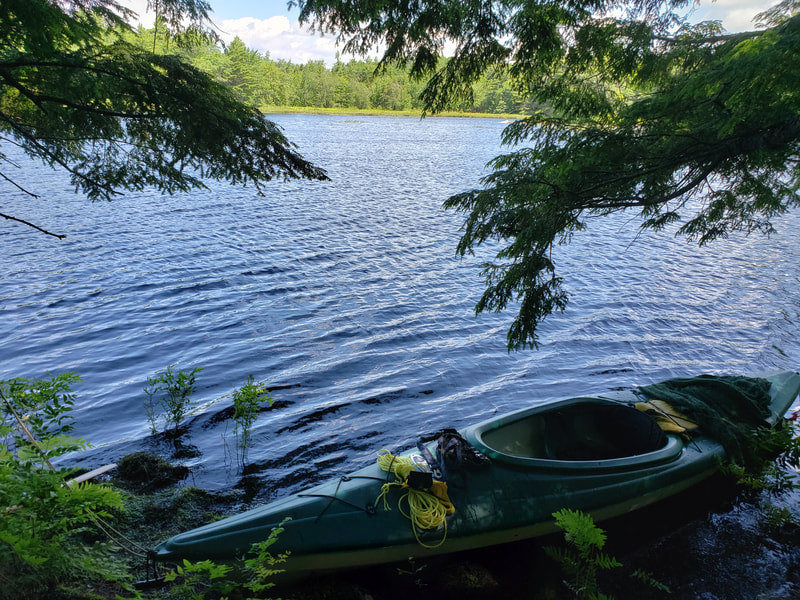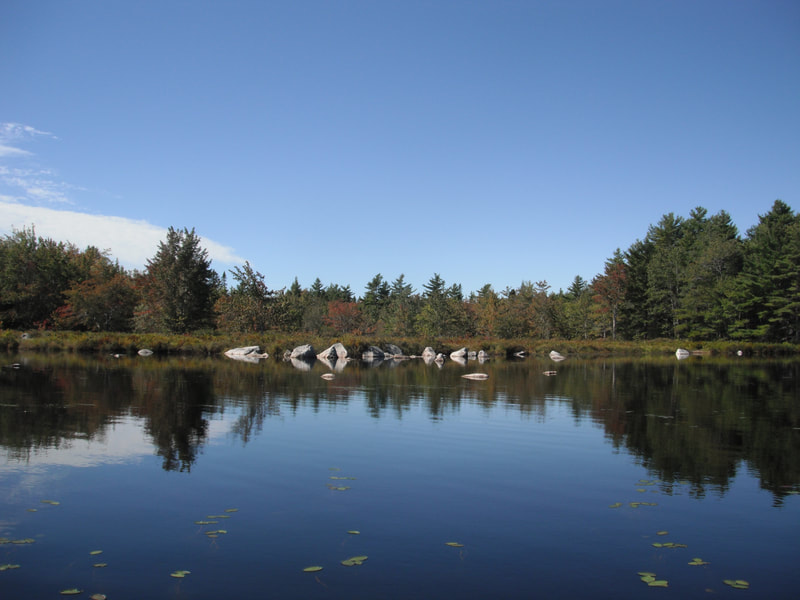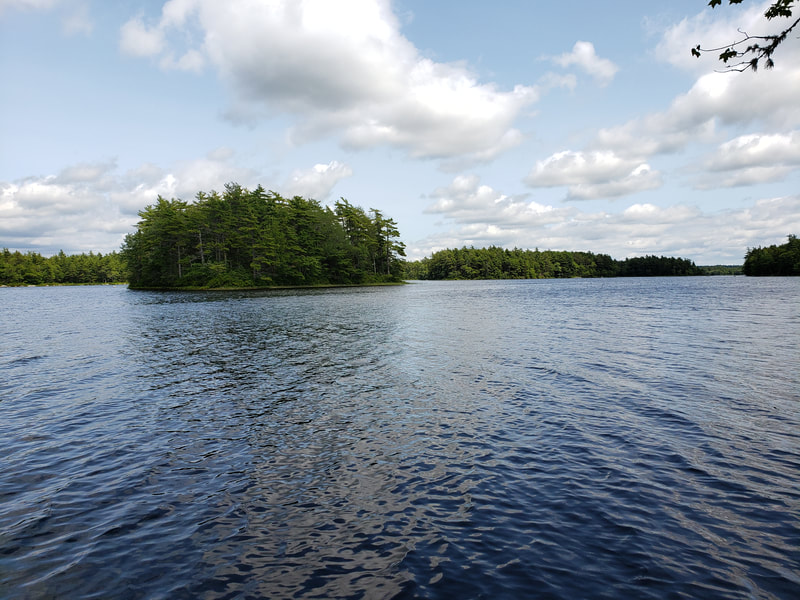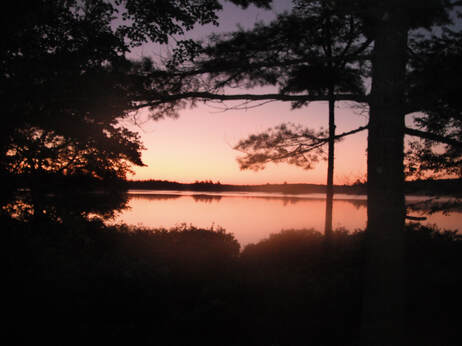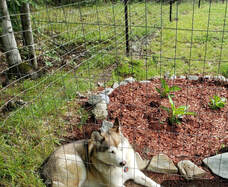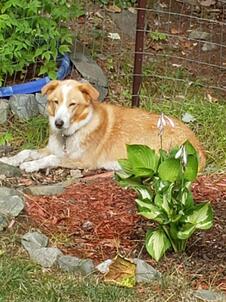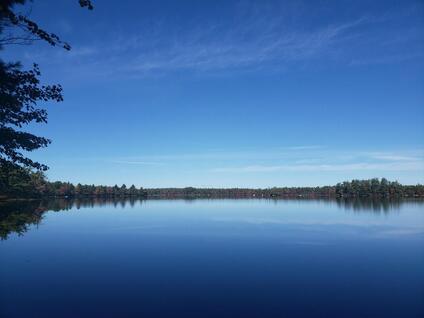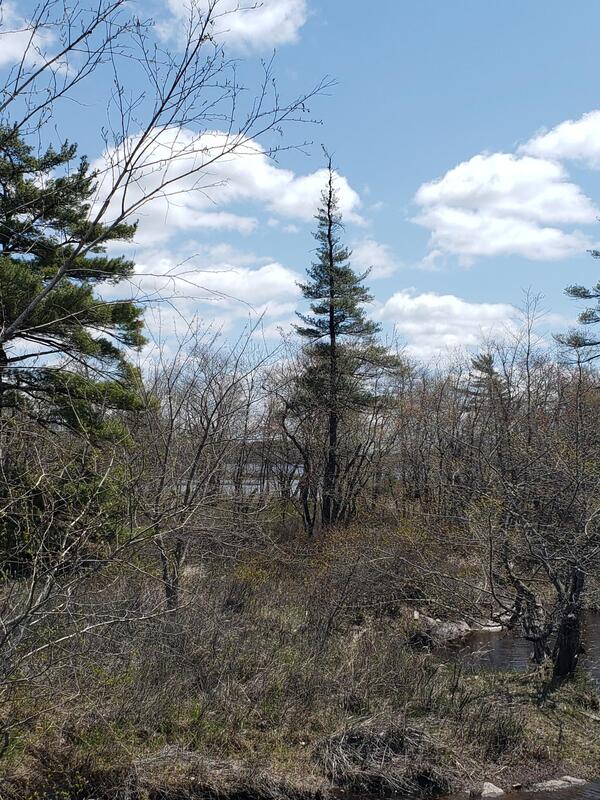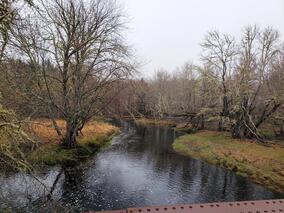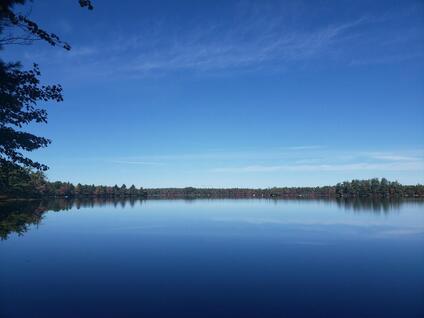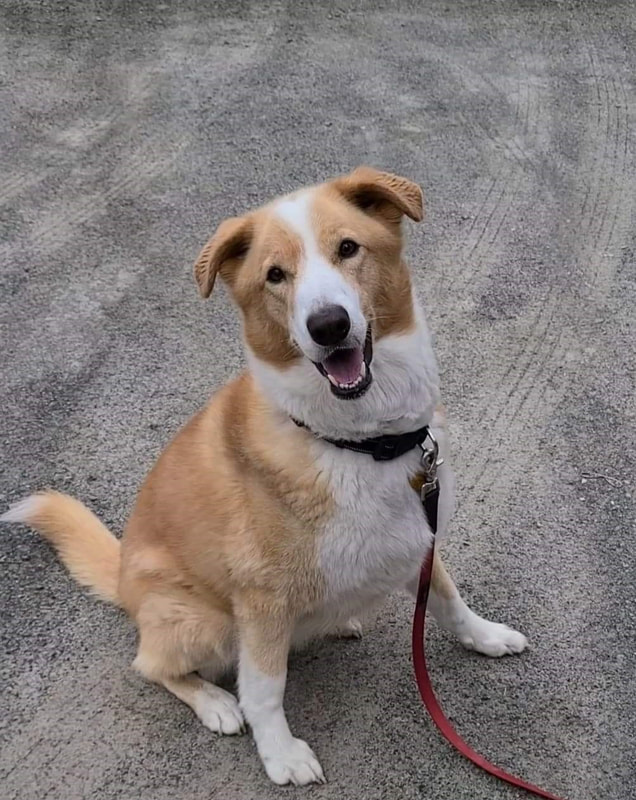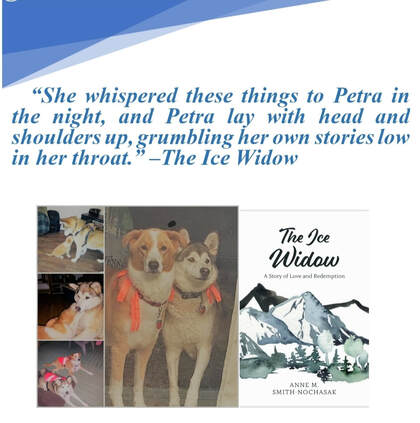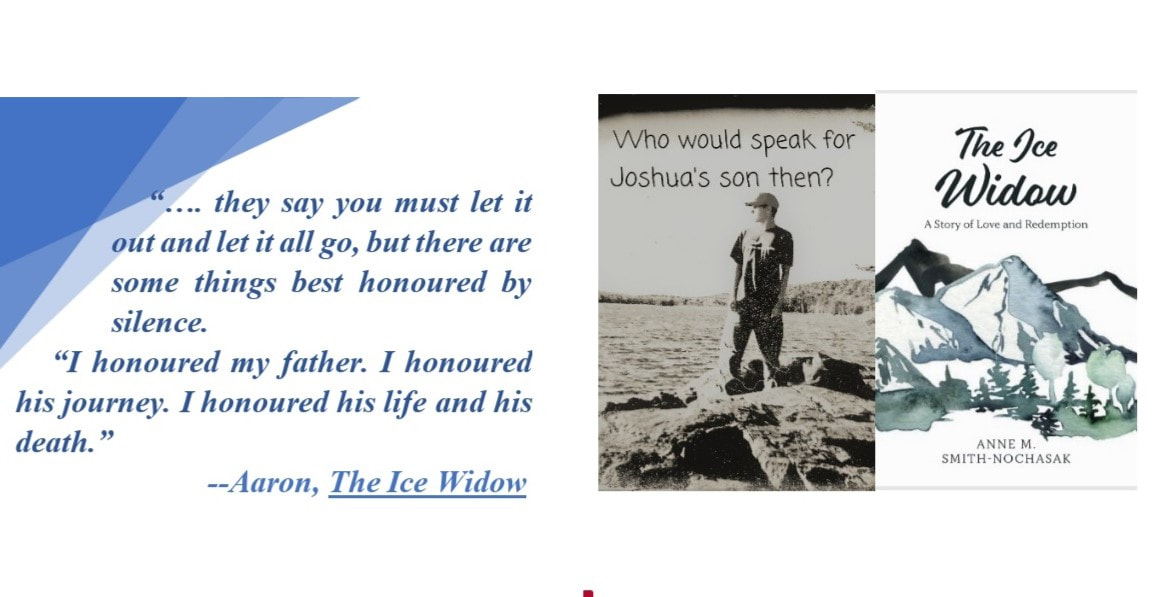AuthorAnne M. Smith-Nochasak: Archives
July 2024
Categories |
Back to Blog
Parable of the Raccoons and Beavers6/18/2023 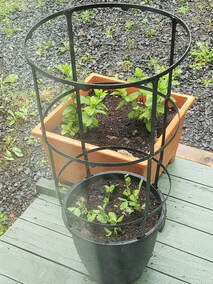 A parable is usually a life lesson, revealed through a succinct story. A fable accomplishes the same task, but usually has animals as main characters. This story has plants and animals, but they aren't the characters. So I am justified in calling this a parable. The main thing is, we learn through stories, because we pay attention to stories and we remember them. I can picture Jesus looking into the milling crowd, shoving his lecture notes into his sleeve, and saying, "Yep. This situation calls for a parable." Besides, "parable" has a certain dignified ring to it, and I have always wanted to write one. 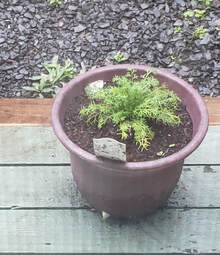 A certain woman went out and made a fragrant garden on her front step, using rich soil and pots of divers sizes. She chose marjoram, basil, and oregano to make meals satisfying to the tongue. There was chamomile to soothe, and mint to refresh the spirit, and.... well, you get the idea. Now raccoons came in the night to feast on grubs within the rich soil, and knew not the woman's ambition. And verily, with their tiny hands they scooped the tender transplants, roots and all, and scattered them upon the ground. They spilt the contents of the pots, smothering and trampling her cherished herbs until they were wilted and limp. Now in the morning, the woman was sorely troubled and laid plans to undo this mischief. Truly, she would overcome the raccoons. "Lay compost upon the ground," one urged her. "Cast down vegetable and leaf; sprinkle bone of chicken and of fish. Place it in a corner of the lot, as an offering delightful to them. They will eat, and trouble you not." The woman had a vision of raccoons and bears gathering and feasting in that distant corner, then lifting up their eyes unto her front step, and skulking forward with salivating maws gaping wide. "Fence them out," urged another. In a fresh vision, she saw the raccoons clambering over the fence, now turning their desires to the large vegetable garden below. The woman remembered the lesson that her father had learned in bitterness and sorrow, when she had been but a child. (This is a parable within a parable, which might not be possible for the form, but here it is anyway.)
So the woman repotted her chamomile, and she repotted her mint, and her oregano, and her basil, and her marjoram. And she accepted that, if the raccoons returned, her meals might be less tasty, but she would not starve. And verily, her garden flourished. Here endeth the lesson.
2 Comments
Read More
Back to Blog
When Creation Sings6/9/2023 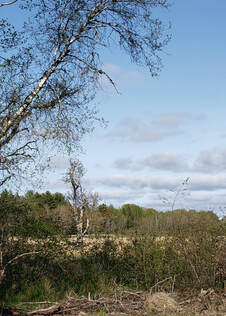 "I stand and feel the heartbeat of creation surging in unison with mine, and your heartbeat is there, and this is dazzling." Anna's "Northern Magnificat" in The Ice Widow We do not invite a theophany. If we look for it, it will evade us. We develop systems with key phrases and gestures to summon the deity, to capture the divine presence, to bind it to us. We systemize holiness. Layer upon layer, with ritual and invocation, we drag God into our presence. We systemize our responsibility to creation. We cannot feed you, because we are busy volunteering. We have a heat-pump that reduces power usage; we crank it up. We buy an electric car because we are virtuous and electricity is clean. We will deal with the clutter, the lithium mines, the bits and pieces of toxic waste, the recycling and all the other fun..... tomorrow. The earth is as weary of our projects as surely God must be. Send us rain, so victims of fire can get back to normal. Not too much, though, because flood victims will then be taking news time. Bring balance, so we can have fireworks. And don't forget to pray for the nice people in the front lines. Do not clear-cut unless you are flattening the earth for condominiums with environmental upgrades. Save your plastics; they will be currency one day. We will wrestle creation and creator into submission. The Spirit moves over the waters, and remembers a dawn sweet with promise. The Spirit is lonely. I awaken to a grey dawn. The skies are flat, empty of rain. My heart is dull; I touch the morning and feel dust. There should be roundness; rich earth should cake in my fist. I inhale the morning, and it is the mustiness of the tomb. There should be earth rot and blossom packing the air, and a breeze fanning the earth, the Creator's palm caressing. Life is dead on the apocalyptic fringes of our world, and all the electric cars and heat pumps will not save us or feed the starving or cleanse their sores. 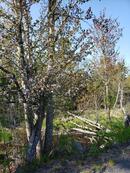 One shaft of light pierces the grey and touches a finger to a decaying trunk, caressing its length. One shaft of light and that breeze stirring becomes the breath of God beside my ear, washing through me, spinning in ecstasy over creation. Light dapples and dances to the choir of the universe and I am alive. That vibration in the air -- that is the voice of creation singing. God reveals presence as they choose. The day begins with hope.
Back to Blog
Sweetness of the Morning5/23/2023 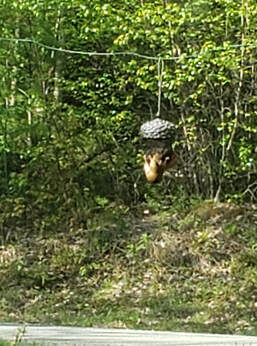 Time is passing. Yesterday, my spirit sang in every moment; the leaves had never been so delicate, the breeze never more fresh. Thanksgiving had never risen so easily to my tongue; every taste, every scent, every step was a blessing. This morning, though, I awakened to days slipping past and our loved one not in them. The shimmering sunrise reproached me. The breeze was musty with decay, with hints of impending drought and fire. The mosquitoes would be out soon. Our loved one was not coming back. Then I saw the reddish-brown shape clinging to the birdfeeder. Squirrels hesitate to walk on thin cables, so we strung our bird feeders on long slender wires, far from the trees, well above ground. Nevertheless, there he was. 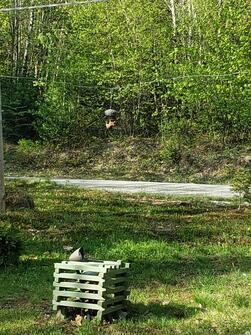 He could not have sprung from the ground, and could not have leapt from the branches, although I have watched one soar from a limb eight feet away. The feeder swung gently, and he was gnawing his way through the wire mesh, oblivious to the outraged human and quivering dogs watching from the window. And in the grand scheme of life, will it matter if one tiny squirrel overcomes the plots and technology of one human? The world will still turn, the sun will still rise -- I began to smile as he swayed and nibbled in his private moment of joy, perhaps his own little psalm rising on the breath of creation. So I took note of that, and acknowledged that there was something in the moment worthy of celebration. 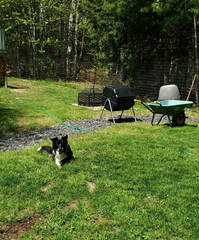 I turned to my morning yardwork. The slope above the garden had eroded, the soil sliding away. I raked in rich topsoil, scattered grass seed, and sprinkled mulch to hold the seed in place. Flo, the Border collie, watched. Border collies have a gift for scrutiny; they study every move -- processing, calculating. As dogs of remarkable intelligence, they have an extensive vocabulary and 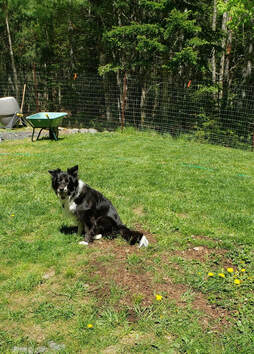 comprehension. If you explain to them what you want, they will act upon it. You must, however, be thorough. As you can see from the photo to the left, Flo did not have her paws on the soil. She had been told that she must not walk on these places. And she did not. She sat, happily wagging her tail, the grass seed scattering. In the grand scheme of things, when the sun goes to its red giant phase, there will be a bald patch on the earth. Will it matter? I let it go, and the scent of dust and grass was sweet in the morning. My lady Mikak, street dog and defender, loved to curl beside her hostas. When they faded in the fall, she would lie over them. Now Shay, the pup she raised, watches for her. It lifts my heart to see Shay, to know that she is alive, fully present in this moment. My departed friend would laugh and laugh over the way the squirrel overcame all obstacles; he would shake his head and smile at the Border collie's meticulous attention to detail. He would delight in Shay. He would celebrate the humour and the grace in each moment. 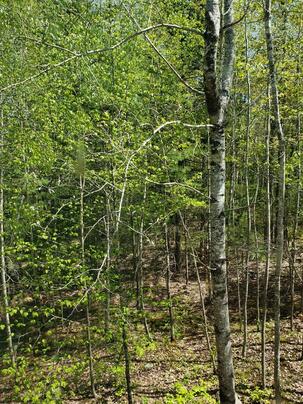 "I will lift up my eyes to the hills -- where does my help come from?" Psalm 121 ESV My help rises from the little moments the Creator gives me, breathed into being from the depths of love. There, beyond my window, how many shades of colour on this palette? How many moments to embrace the joy that would buffer the pain? How many memories to be made or already present, just waiting for me? There are signs and wonders in the morning, teachings small yet great. I stare out into the world and I know that, one day, this shall be consumed and on that day, it will be this day, this one here before me, that will rise to my lips as a psalm. Here in my loft, I feel the paddle draw and pull and I, a dry leaf spinning on a dead branch, I am laughing, simply laughing, because I am part of creation, part of everything, part of the sweetness of the morning.
Back to Blog
Where Loons Are Waiting5/16/2023 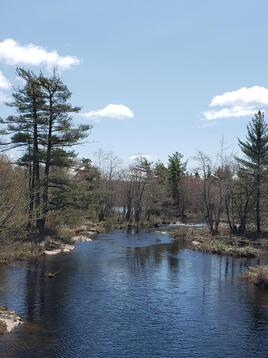 You called me that day. The sun was just rising, the mist hovering in the woodlot. Down past the hollow, beyond the road even, from a shallow lake tucked among distant trees, all that way, you called me. My First Lake rose before me, her special sunrise sweeping the sky above the water, as you sang a song of rain coming. And because my heart was breaking for those times, I made a plan to mow the lawns, to comment on social media, to catch up on laundry and dust the shelves. Those times are past, I said. All the while, your song reverberated in my soul and my day hung wasted. 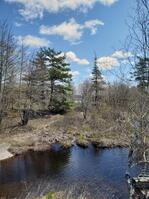 The next day, the Sunday, the longing overpowered me. I gathered kayak and gear, and made my way to the bridge. On previous outings, I had wandered the marshes upriver and found the rapids downriver. Today, though, was for the narrows and the shallow lake beyond, the re-entry to the time of First Lake, my Wasaya time. The waters were a glimmer through the tangle, a promise and a summons. 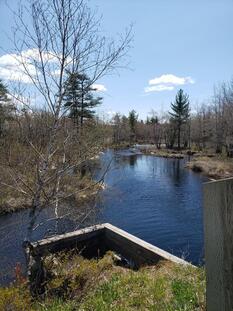 The rocks were slippery and the banks soft as I worked my way to the lake. You were waiting in the first cove, silent, expectant. You arched and stood, there in the water, your wings spread wide and fanning, the sun reflecting from your white breast, water droplets glistening. Your silent hymn of praise proclaimed creation holy. You lowered back into the water and swam beside me. 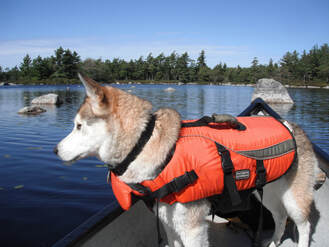 I looked, and I recognized these shores: this was the place below the landing of Wasaya times, and I felt my lady settle behind me, the way we once explored, her and me, when every moment belonged to us. I felt her lean on my shoulder, as she always did. The years faded, and our time was young again. You paused, and you turned away. The wind pounded at my back and I slid down the lake, my lady at my shoulder, my life strong. You guarded our journey but did not follow. Then it was turning time. My lady would always spring to a rock and find the shore now, but suddenly, she was not there. I was alone. I dipped and pulled. The landmarks did not pass but instead slid farther away. The anger built and all the dark thoughts of my past battered my consciousness. My cheeks burned as the wind swept across them, pushing the anger over my shoulder into the white caps behind. The waves churned, wrestling my anger and drawing it down. And suddenly, I was in the cove again. You floated beside me as I sought the channel to the narrows. We were companions, here in the sheltered silence, no songs, no words, no anger. We are comrades in arms, aren't we? We share the calm, share the damp scent of rain coming. We know. We are. I hear the world is ending, and there are so many stories of how it will be then. Here is my story of how it will be. Here is my own secret paradise. I will awaken to a paddle in my hand on a still dawn, your song and your silence with me. Together we will glide the waters, the dogs of my life running the shore, but my lady will rest at my shoulder. It might not look like this, it might not happen like this, but this feeling, this is the feeling of eternity. The feeling of being.
Back to Blog
With Splendor and Majesty5/1/2023 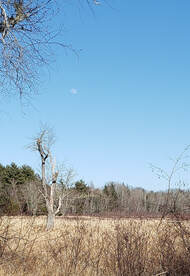 The Lord wraps himself in light as with a garment; he stretches out the heavens like a tent and lays the beams of his upper chambers on their waters. He makes the clouds his chariot and rides on the wings of the wind. --Psalm 104 (NIV) 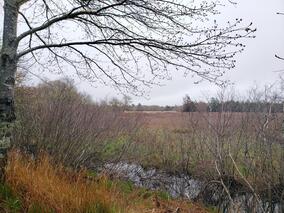 Creation is not the work of an angry, resentful god, who broods over human failing and plans sweet eternal hell fire in retaliation. We too often expect the Creator to be like us at our very worst -- petty, cruel, vengeful, punishing on a whim for short term satisfaction. We turn away, because He allows suffering, lets the wicked prosper, etc. We do not consider the heartbreak of a benevolent Creator, witnessing his beloved creation laid to waste. Creation is natural law in action. Reversals of natural law have consequences; they do not happen on a whim. So, the Creative principle of the universe moves alone over the waters, and perhaps images of the First Day shimmer there in memory. 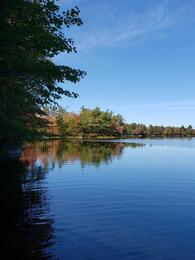 The psalmist captures the wonder and amazement of the natural world; he looks into creation and sees the splendor of a world freshly made. The perfection and the balance. The wonder and the joy. On Sunday, the urge to be on the water was overwhelming. I have restrictions now; I do not swing my canoe into the water and paddle at will. I cannot even lift a canoe or maneuver it now. All those summers on the lake burn in memory: I feel the freedom, the lazy draw and pull of the paddle in the lake at sunset, the dogs alert and watching, the ducklings trailing home to the creek, the beaver churning back and forth in the cove. And then, I hear the loons raise their own psalm, their hymn of praise for a remembered perfection, for a time when the earth was in balance. The memory of my world freshly made compels me to the water. I have built a simple frame for my battered kayak; I slide it into the back of my vehicle without lifting. I make my way to the river and let the kayak slide in. My life is slower, yes, but when I am on the water, the pain lifts, the weakness dissipates. I am free. 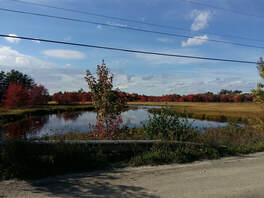 On Sunday I followed the meanders of our narrow river through the marshes, swallows rising all around me. The May fly were just rising. Around the bend there was a rush of feathers and a pair of Mallards burst into the air. I trailed behind a brilliant white Common Eider, his dark trim a haze as he finally took flight, his mate suddenly there and rising beside him. 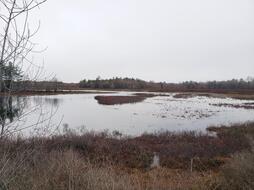 The trees hung over the water more nobly, the dry marsh grass whispered more reverently, and I was transported back to the days on the lakeshore writing, simply writing because it filled my being with joy. I wrote in those times in watercolor. Later I wrote in oil, the shoreline still strong in my blood but tempered by the struggles of the dying. In my loft, staring into the woodlot, my fingers scrambled to put down the story that rose before me. And then it stopped. Today, the shoreline sings in my being again. My story is new again. I will write because it delights me to celebrate a world clothed in splendor and majesty. I am not a psalmist; my words do not ring of eternity. Yet, I will raise my words in my own small way. I believe the Psalmist was the first canoer of shorelines.
Back to Blog
True Heroes4/8/2023 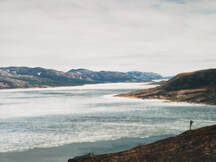 "I also take my cues from one who may soon be passing from our midst. No matter what the day brings, no matter how hard the news that comes to them this day, they find joy. To honour them, I must rejoice in the day, in the light, in the presence of true heroes. " --Song of Joy, March 13th, 2023 Today, more than ever, I must discover joy, for two weeks after I wrote those words, this person was gathered from us. He was a very private person, this true hero, so I will post a picture of his beloved Land, not his portrait. To really see that scene is to know his spirit. To honour him, I will celebrate life, even when the world seems to be collapsing. People have asked me if he is Joshua in The Ice Widow. No, he is not, for Joshua is a fictional character, with dreams and hopes of his own. However, the goodness in this person was the inspiration for the character of Joshua. They were both persons of integrity and honour, who loved the Land and their heritage. But each followed a unique path. There is no happiness in this time, and we shall all "weep until our hearts run dry." (cf. Terrence, The Ice Widow) Yet there is joy: we weep because we love, and because we are loved. My joy today is in the life of this person who, days before his death, said that he was happy, that he had fought it well. And then he asked if I was all right. "Joy is the experience of knowing that you are unconditionally loved and that nothing—sickness, failure, emotional distress, oppression, war, or even death—can take that love away." Henri Nouwen, Here and Now Happiness is a spontaneous reaction when good things come our way. Joy is the capacity to affirm life, whatever comes our way. This person embraced life, whatever came his way. We did not spend that much time together over the years, but still evolved into a "surprising but necessary" friendship. And that is what I am going to remember. I see the darkness in both our lives, but I affirm the light. That is what I am going to celebrate.
Back to Blog
Song of Joy3/13/2023 Today, I want to step aside and celebrate the approach of spring. Today the light is dazzling on the snow, and there has never been a greater day in the history of the earth. Tomorrow, there will be ice pellets and high winds, power failures and darkness, but today, my friends, my heart is full because the sun caresses my face, and I am alive in it.
I take my cues from Shay, The Happiest Dog. Shay was born outdoors at -26 C. Shay managed to eat rock salt when she was ten weeks old, and she nearly died. She has been treated for innumerable ear infections, is allergic to bee stings, and develops kennel cough despite her vaccinations. Her life has not been easy, but she ever presents that eager face, brimming with hope and love, to light up the world. Her pedigree name, spelt somewhat phonetically, is: Ae-Mah-Koo-Shay-Key-She-Kow, for she was born at Christmas, the time of feasting and celebration, her two favourite things. Shay lives to share her joy in life. (The dog Joy in my novel is modeled on Shay.) I also take my cues from one who may soon be passing from our midst. No matter what the day brings, no matter how hard the news that comes to them this day, they find joy. To honour them, I must rejoice in the day, in the light, in the presence of true heroes. Therefore, I am joyful this day. Tomorrow, I might be shattered, but I have the teachings of today to sustain me even then. Deep in my heart, this moment will shine forever, to bring light into darkness. Perhaps a blog should be more reflective, less personal, more syntactically under control. This might be simply a scattering of ideas, but I offer it anyway. Blessings, my friends, on the journey.
Back to Blog
For Petra and Joy2/27/2023 Anna, our central character, is not one who can trust easily. She never really opens up to her fiancé Terrence and is not one to confide in her mother. Her infatuation with Joshua, even as it blossoms to love, does not really open a dialogue. There is much, she reflects later, that she did not ask about him, that she did not know -- things that his wife Leah would have known and carried in her heart.
When she encounters the Husky Petra on the trail, however, Anna immediately pours out her inner grief to this being. As Petra's guardian observes: "... You been like a shadow here, always ready for school, always doing things right, but never smile, never part of things. Politically correct, but like you’re scared not to be. “I come along, and here you are, talking all out to the dog. Like she’s your therapist or something. And her listening all out. I think she’s your dog.” I have often said that I do not choose my dogs; they find me when it is time. Thus it is with Anna and Petra. Petra is her mentor, her companion, and her secret keeper. Those who have been chosen by a dog will understand. Yet Petra maintains her independence. She never loses her yearning to roam free in the Bush, hunting as in her youth. When she senses that Anna is about to leave her, she feels the loss, but survival dictates that she must find new connections, as she does with Natasha. I do not agree with Anna's choice, but I think it is in keeping with her character. Joy is a much different dog. We are not told how Joy comes into Anna's life, but we sense that this is a dog who is simply amazed by the world and embraces every good moment. She loves Anna, but she loves all life, and will be Joy wherever she is. Petra is perhaps an "old soul"; Joy is childlike innocence. Anna needs both dogs really: one to guide her, one to lift her from her inner intensity. Together, Petra and Joy bring balance to her life. Both are modelled on the dogs of my own life. Ten months ago, I had my farewell walk with my personal Petra. Each day, I remember her; each day I give thanks for the memories we made and for this time to remember. To me, dogs are a special gift from the Creator, sent to teach us how to be better people. They are sent to bind up our breaking hearts, and to lift us to joy. ~~~ Two years ago we waited while a family member had an emergency MRI. It had been a long day of sudden changes and fears for us, and the waiting room was crowded and grim. I turned to my friend and commented, "No matter how this turns out, think what it would have been like if we'd brought the dogs." A woman across the room put down her phone. "What kind of dogs do you have?" the former stranger asked. Within moments, the room was ringing with laughter and many dog stories were exchanged. We were offered rides back to the hotel; everyone hoped each other had a good Christmas. All because, by accident, the word "dog" was spoken. That really happened. If you have a story about a dog who made a difference, even just by being there, I would love to hear about it.
Back to Blog
Aaron: Silent Son2/19/2023 Aaron is the son of Anna and the son of Joshua in The Ice Widow. Much of the time he is a figure in the background, silent in the shadows.
Anna and Joshua never really sit down and make a firm plan for Aaron. Joshua would like to plan, and encourages Anna to settle in Endor and raise Aaron there. Although he is marrying Leah, he wants to remain on friendly terms with Anna, so that Aaron will grow up with both parents nearby, and will live surrounded by all his family history. Reah, one of the guiding people Anna meets on her journey, sums it up:
This is not seen as an awkward thing or a bad thing; it is the best of both worlds. For Anna, though, this is not possible. Her life with Joshua would have to be her life together with Joshua on her terms, and when she knows she cannot have this, she isolates herself more and more. Anna’s mother worries; she suspects that Aaron is “Anna’s Joshua-token”, and that she loves him “but as a memory, sometimes, more than a real child.” Joshua and his family are very accepting and welcoming people, happy to have Aaron around, and willing to welcome Anna. The offer for her to come to Endor is made often, and Joshua comes to visit his son each summer until Aaron is old enough to travel to Endor. Eventually, Aaron asks to spend more time with his father, and one day, he is simply living in Endor and visiting his mother each summer. Some feel that Joshua and Leah and Anna work together for the benefit of Aaron, that they keep in touch and plan together for his benefit. A close scrutiny reveals that there is little dialogue; it appears that Anna simply lets things roll along that way. She does not try to enter Aaron's Labrador life, except that one ill-fated Christmas visit and his high school graduation, at which she realizes “that he had become a man without her bearing witness to his life.” Yet Aaron turns out well, a tribute to all his cultural backgrounds. His mother is anxious to be a good parent, but there is little interaction between mother and son. His father is happy to see Aaron settled in his family, but the insistence on Anna’s participation leads to anxious moments for Aaron: “Aaron had his mother-home moments, and then his father-home-panorama-of-family. That way was comfortable. If the settings overlapped, he knew, he would lose both worlds.” Why does Aaron turn out well? I attribute this to the gentle, loving presence of Leah. She is simply there, with love and a hug when it is needed. She is the one who grounds them all. And that, my friends, is what we really need – one face that smiles for us, one set of arms that embraces us. Someone who believes in us, cries for us, and laughs for us. That is the face in the window that watches for us. I pray that each of us will find and honour that one who will carry us.
Back to Blog
Terrence: Creative Faith2/10/2023 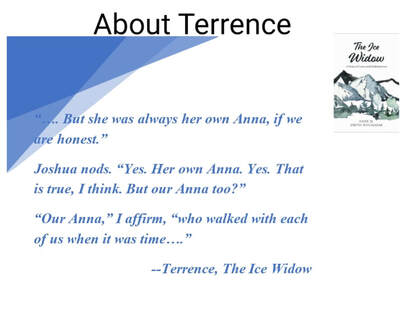 Who is Terrence in THE ICE WIDOW? Many have had deeply painful experiences at the hands of organized religion, and so I will tell you immediately that Terrence is a minister. If you do not wish to read further, I will honour and respect that. If you wish to read further, I assure you that Terrence is not your typical minister. I initially cast him as a fussy, somewhat tedious scholar, but a good person – filled with love for his neighbour, operating street outreaches for troubled youth, and falling in love with the innocent Anna Caine. Terrence did not really grasp that Anna was instinctively seeking a safe refuge. He began as an awkward student with an open heart and a naiveté that could only end in a broken heart. Terrence had seen himself as one whose faith embraced the universe, and he was humbled to discover that he could not accept Anna’s affair or the child of that affair. He decided that her son would be the child from the North that they adopted. Better yet, he could be raised by his father, in his own culture, a further hurt to the child’s mother. Terrence brooded over the Book of Hosea after Anna’s departure. “Had he become Hosea, most inept husband in the whole Bible?” He just glanced at the Book of Hosea in its scriptural meaning and was soon carried away in a highly personal speculation: Hosea lived his life as a model of God’s relationship to his covenant people. Or so, Terrence considered, Hosea would have us believe. God told Hosea to marry a whore—this was a deliberate, calculated act. He also told him to take her back. That was supposed to represent God’s willingness to take his wayward people back. Hosea was not a fool. It was not bad judgment or naiveté that made him such a luckless husband. It was God’s will! In Terrence’s final reflection, however, the pain of God’s commitment became real for him: …. That was going to be their table, where she would smile and pass him his tea. Every day was supposed to start like that, but instead there was just a lonely fool, staring at the empty chairs through his tears. Just him, and his own personal wilderness. “She doesn’t want me, God,” he sighed, “and now I am all alone. “Is this how you feel, every time?” In that moment, he recognized the loneliness and heartbreak of God. This is the point at which I began to love Terrence, the man who grieved the crucifixion of our Lady of Shadowed Hope, Tonya, and saw Christ in communion with her, sprawled in the bloody snow by her body. This is the man who would embrace Anna on her quest into the North, the man who would recognize in his rival the presence of the risen Christ. Ultimately, Terrence would become the man who would accompany Joshua into his final journey: He will be like the desert ancestors marching out of Egypt with nothing but the power of God to warm their hearts and fill their bellies. Terrence would also recognize the worth and dignity of Sarah and perform heroic deeds. When I started, I had no idea that Terrence was a great man. Maybe I should look more closely at the people of my life, and see the blessing that is there, waiting to be discovered. |
ANNE M. SMITH-NOCHASAK
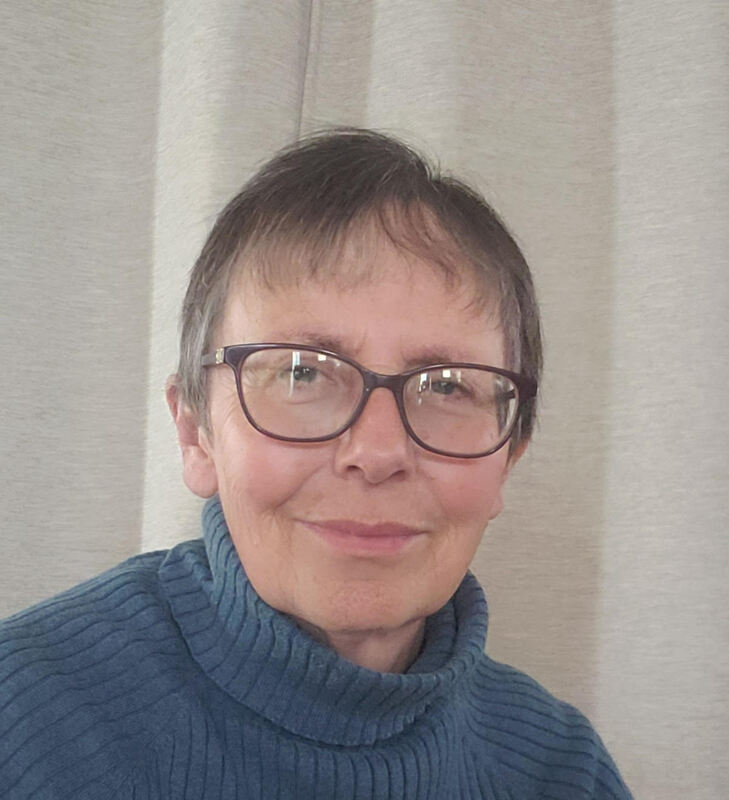
 RSS Feed
RSS Feed
